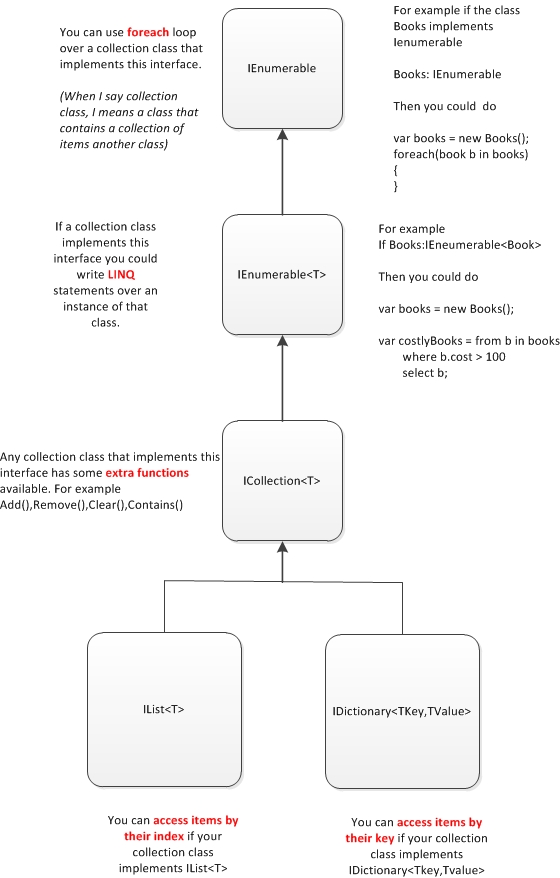Translate
Monday, May 27, 2013
Thursday, May 23, 2013
Introduction to generics in c# (Simplified version)
If you have a need, where you want to a general purpose class or method that can deal with any
type (int,string etc), that's where generics come into play. Its much easier to
understand this with an example.
Defining a generic
method
Consider the example
below. It shows a generic method Print() that accepts any type
(string,int,double,float etc) of variable. You declare the type you are passing
in, in the angle brackets <> where you call the method.
using System; using System.Collections.Generic; using System.Linq; using System.Text; namespace ConsoleApplication { class Program { static void Main(string[] args) { Print<int>(2); Print<string>("hello"); } static void Print<T>(T myVariable)//This is a generic method { Console.WriteLine(myVariable.ToString()); } } }
The T in the angle brackets after Print means that any type can be
passed in.
As you can see, the type being passed in has to be known at
compile time. If you want type to be resolved at run time, you would have to
use reflection.
Defining a generic
class
In the code below Hello
is a generic class. The type of T is established at the point where
you instantiate the class.
using System; using System.Collections.Generic; using System.Linq; using System.Text; namespace ConsoleApplication { namespace ConsoleApplication { class Program { static void Main(string[] args) { var h1 = new Hello<int>(); h1.Print(10); var h2 = new Hello<string>(); h2.Print("hi"); } } public class Hello<T>//This is a generic class { public void Print(T myVariable) { Console.WriteLine(myVariable.ToString()); } } } }
Note here that Print is
NOT a generic method.
A generic class has
angle brackets <> after the class name.
A generic method has
angle brackets<> after the method name.
Subscribe to:
Posts (Atom)
